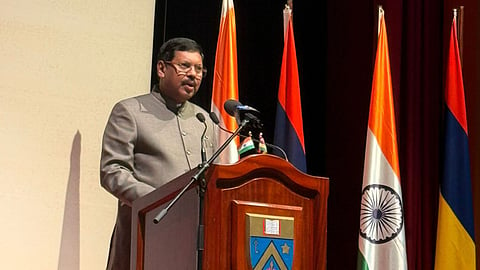
- Latest Legal News
- News
- Dealstreet
- Viewpoint
- Columns
- Interviews
- Law School
- Legal Jobs
- हिंदी
- ಕನ್ನಡ

Chief Justice of India (CJI) BR Gavai on Friday remarked that the Supreme Court's 2024 ruling that it is illegal to arbitrarily demolish houses or resort to 'bulldozer justice' merely because they belonged to people accused of crimes, but not declared guilty, served as a reminder that India is governed by the rule of law.